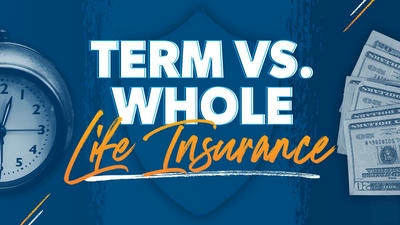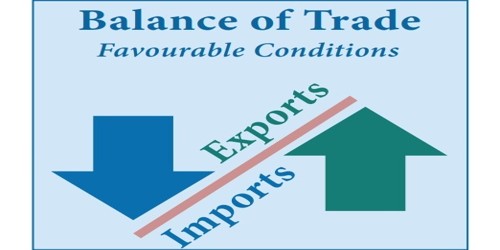
If you run a home-based business, it’s crucial to protect it with the right insurance coverage. While many entrepreneurs assume their homeowner’s insurance policy will cover their business, this is often not the case. Home-based businesses face unique risks that require tailored insurance solutions to ensure they are adequately protected.
In this article, we will explore the different types of insurance available for home-based businesses, the importance of assessing risks, and how to choose the right insurance provider. We will also cover tips on understanding insurance policy terms, mitigating risks with safety measures, and making insurance claims. Finally, we will touch on additional insurance options you may want to consider to bolster your overall protection.
Key Takeaways:
- Home-based businesses require specialized insurance coverage to protect against unique risks.
- Assessing the specific risks your business faces is crucial to determining the right insurance coverage.
- Working with a reputable insurance provider and understanding policy terms is key to ensuring comprehensive protection.
- Implementing safety measures and regularly reviewing and updating your insurance coverage can help mitigate risks.
- Additional insurance options such as professional liability insurance and endorsements can enhance your overall protection.
Understanding the Importance of Insurance
As a home-based business owner, you may not think that insurance is necessary. However, having insurance is crucial to protecting your business and mitigating potential risks. Insurance provides financial security in case of unexpected events, such as natural disasters, accidents, or lawsuits. It can help cover the costs of damages, legal fees, and medical expenses, allowing you to focus on your business without worrying about financial setbacks.
Insurance policies are tailored to address specific risks that home-based businesses may face, such as property damage, product liability, and cybersecurity threats. Without adequate insurance coverage, you risk losing your business and facing legal and financial repercussions.
One of the most important benefits of insurance is risk mitigation. By having insurance, you can take proactive steps to protect your business, knowing that you have a safety net in case of unexpected events. Insurance can also give you peace of mind, allowing you to focus on growing and expanding your business without worrying about the future.
Protecting your business should be a top priority, and having insurance is a crucial element in achieving this. By investing in insurance, you are investing in the long-term success of your home-based venture. Don't wait until it's too late – get the right insurance coverage for your business today!
Types of Insurance for Home-Based Businesses

As a home-based business owner, it's crucial to have insurance coverage to protect your venture from potential risks. There are several types of insurance policies available, and it's essential to understand their coverage options and relevance to different aspects of your business.
1. Home Insurance
Home insurance policies typically cover damage to your property and personal belongings, such as equipment and inventory, resulting from natural disasters, theft, or other covered events. However, these policies may have limitations on coverage for business-related property, so it's important to review the policy terms carefully and consider purchasing additional coverage if necessary.
2. Business Insurance
Business insurance policies are specifically tailored to cover various aspects of your home-based business, including property damage, liability, and loss of income due to business interruptions. To ensure comprehensive protection, consider purchasing a business owner's policy (BOP), which combines general liability and property insurance.
3. Car Insurance
If you use your personal vehicle for business purposes, you may need commercial auto insurance to cover accidents, theft, and other damages. Personal auto insurance policies may not cover business use of a vehicle, so it's essential to review your policy carefully and speak with your insurance provider about coverage options.
4. Health Insurance
Health insurance policies provide coverage for medical expenses related to illness and injury. As a home-based business owner, it's essential to have adequate health insurance coverage to protect yourself and your family in case of unexpected medical costs.
5. Life Insurance
Life insurance provides financial protection for your family and loved ones in the event of your death. It's especially important for home-based business owners who may not have the same benefits and protections as employees of larger companies.
6. Travel Insurance
If you frequently travel for business purposes, travel insurance can provide coverage for medical emergencies, trip cancellations, and other unexpected events that may arise while you're on the road.
Overall, it's crucial to carefully consider the unique risks and needs of your home-based business and work with a reputable insurance provider to secure comprehensive and customized coverage.
Assessing the Risks
Home-based businesses face unique risks that should be identified and understood to ensure adequate insurance coverage. A risk assessment helps you pinpoint potential threats and take proactive steps to reduce them.
Begin by identifying all the assets that need protection, such as equipment, inventory, and data. Then, evaluate the risks associated with each asset, considering factors such as theft, damage, and loss. Next, assess the liability risks of your business, including potential lawsuits or claims against you.
In addition, consider the risks associated with any employees, whether they are hired or simply working alongside you as family members. Finally, take into account the risks posed by external factors, such as natural disasters or cyber attacks.
Through a thorough risk assessment, you can more effectively tailor your insurance coverage to mitigate potential risks and protect your home-based business.
Tailoring Insurance Coverage

Home-based businesses face unique risks requiring specialized insurance coverage. Customized policies offer comprehensive protection tailored to your business's specific needs. By securing proper insurance coverage, you can protect your business from potential financial losses arising from unexpected incidents.
When selecting insurance coverage, it is crucial to understand the various risks your business faces. Consider the size of your business, the number of employees, and the type of work you do. For example, if you operate a childcare service from home, you may need liability insurance to protect against accidents or injuries. On the other hand, if you have a consulting business, you may require professional liability insurance to mitigate risks associated with providing expert advice.
Home-based businesses can benefit from customized policies that provide comprehensive protection. Some options include:
| Type of Insurance | Coverage Options |
|---|---|
| Business insurance | General liability, professional liability, property coverage, product liability, cyber liability |
| Car insurance | Liability, comprehensive, collision, uninsured motorist coverage |
| Health insurance | Medical, dental, vision |
| Home insurance | Property coverage, liability, additional living expenses |
| Life insurance | Term life, whole life, universal life |
| Travel insurance | Cancellation, medical, evacuation, baggage loss |
Working with a reputable insurance provider can help ensure you have the right coverage to protect your business. Reputable insurers can provide guidance on selecting appropriate insurance policies and offer customized solutions to address your needs. Research customer reviews and ratings to find an insurance provider that has a good reputation and a history of satisfied clients.
By tailoring your insurance coverage to suit the unique needs of your home-based business, you can protect your investment and secure a successful future.
Choosing the Right Insurance Provider
Choosing the right insurance provider is critical for any home-based business looking to protect their venture. An insurance provider can offer a range of policies that cover your unique risks, ensuring you have adequate coverage in case of emergencies.
When selecting an insurance provider, it's essential to work with reputable insurers with a proven history of providing excellent customer service. Start by researching different insurance companies online, and pay close attention to customer reviews to get an accurate sense of their reliability.
It's also essential to consider the company's financial strength and stability. Working with a financially stable insurer ensures that they can honor their insurance claims when you need them to. For example, you might consider looking for companies with strong credit ratings and a solid reputation in the industry.
| Things to Consider When Choosing an Insurance Provider: |
|---|
| Reputation in the industry |
| Financial stability and strength |
| Range of coverage options |
| Customer service track record |
Finally, while cost is a significant factor, it should not be the only consideration. It is essential to find an insurance provider that offers customized policies that fit your specific business needs. You want to ensure that you have comprehensive protection and tailored coverage options for your home-based business.
By taking the time to research reputable insurers and find the right insurance coverage, you can protect your home-based business and secure a successful future.
Understanding Insurance Policy Terms

When it comes to insurance policies, it's important to understand the terms and conditions to ensure you have adequate coverage for your home-based business. Here are some common terms you should know:
- Insurance policy: The contract between you and the insurance company that outlines the terms of your coverage.
- Terms and conditions: The specific details of your insurance policy, including what is and isn't covered.
- Coverage limits: The maximum amount the insurance company will pay out for a specific type of claim or over a certain period of time.
- Deductibles: The amount you are responsible for paying out of pocket before the insurance company will cover the rest of the claim.
It's important to review your policy carefully to understand your coverage limits and deductibles. You may want to consider adjusting your coverage levels based on the specific risks faced by your home-based business.
Mitigating Risks with Safety Measures
As a home-based business owner, it's crucial to take proactive steps to mitigate risks. Implementing safety measures and security protocols can significantly reduce the likelihood of accidents, incidents, and losses.
One of the simplest safety measures you can take is to keep your workspace clean and organized. This can reduce the likelihood of trips and falls, especially if you have clients or visitors coming into your home office. Additionally, keeping your equipment and machinery properly maintained and regularly inspected can prevent malfunctions and accidents.
Another important safety measure is to establish a clear emergency plan. Make sure you have a first aid kit on hand, as well as a fire extinguisher if necessary. Ensure that you and any employees or family members in the home know how to use them. Consider running emergency drills to prepare for potential disaster scenarios.
If you handle confidential or sensitive information, implementing cybersecurity measures is crucial. This can include using firewalls and antivirus software, keeping your passwords secure, and regularly backing up your data.
To further protect your business, you may also consider investing in security systems such as cameras, alarms, or even a security guard if necessary. Additionally, if you have clients or customers coming to your home office, installing a separate entrance can help ensure their safety while maintaining your privacy.
Tips for Developing Safety Protocols
When developing safety protocols for your home-based business, consider the following tips:
- Identify potential risks and hazards in your workspace
- Establish clear emergency procedures
- Communicate safety protocols to any employees or family members in the home
- Regularly review and update safety protocols as necessary
By taking these steps and implementing safety measures in your home-based business, you can effectively mitigate risks and protect your venture.
Reviewing and Updating Your Insurance Coverage
As a home-based business owner, it is crucial to regularly review and update your insurance coverage to ensure that you are adequately protected. An annual review of your policies is recommended to keep up with any changes in your business or industry, as well as any updates in insurance regulations.
During your review, take the time to assess your needs and evaluate whether your current coverage is still sufficient. Consider factors such as changes in revenue, inventory, or equipment, as well as any new employees or partnerships.
If you have made any significant changes to your business, it may be necessary to update your policy. Reach out to your insurance provider to discuss any updates or adjustments needed to your coverage.
It is also crucial to stay informed of any policy updates or changes. Your insurance provider should notify you of any updates, but it is still essential to read through your policy thoroughly to understand any changes in coverage limits or terms and conditions.
Remember that your insurance coverage should be tailored to the specific needs of your home-based business. By reviewing and updating your policies regularly, you can ensure that you have adequate protection and peace of mind.
Making Insurance Claims for Home-Based Businesses
As a home-based business owner, you may encounter situations where you need to make an insurance claim. Whether it's due to property damage, theft, or liability claims, understanding the claims process is crucial for a successful outcome. Here are some key considerations to keep in mind:
The Claims Process
When making an insurance claim, the first step is to contact your insurance provider and notify them of the incident. They will guide you through the claims process, which typically includes:
- Filing a claim form: Provide a detailed description of the incident, including the date, time, location, and any witnesses present. Be honest and accurate in your description to avoid potential complications later.
- Providing documentation: To support your claim, you will need to provide documentation such as photos, receipts, and police reports, depending on the type of claim being made.
- Cooperating with the claims adjuster: Your insurance provider may assign a claims adjuster to assess the damage and investigate the incident. Cooperate fully with their requests for information to ensure a smooth claims process.
- Receiving payment: If your claim is approved, your insurance provider will provide payment for the damages or losses covered under your policy.
Documentation
Proper documentation is crucial when making an insurance claim. Make sure to keep a record of all the relevant information such as the date and time of the incident, detailed descriptions of the damages or losses, and any supporting documentation such as receipts and photos. Providing accurate and detailed documentation can help speed up the claims process and increase your chances of a successful claim outcome.
Common Claims for Home-Based Businesses
Common claims for home-based businesses include property damage, theft, and liability claims. Depending on the type of business you have, you may also need to make specialized claims such as cyber liability or professional liability claims. Understanding the type of claims you may need to make can help you prepare and ensure that you have the appropriate insurance coverage in place.
By understanding the claims process and having the necessary documentation in place, you can ensure that your home-based business is protected in case of unexpected incidents. However, prevention is always the best approach, so make sure to take proactive steps to reduce your risks and avoid potential damages or losses.
Exploring Additional Insurance Options
As a home-based business owner, you have a range of options when it comes to insurance coverage. While basic coverage such as home and business insurance is essential, there may be additional specialized coverage options that can enhance your protection. Here are some additional insurance options to consider:
Professional Liability Insurance
Also known as errors and omissions insurance, professional liability insurance provides coverage for claims made against your business due to negligence or errors in services provided. This coverage is particularly relevant for service-based businesses such as consultants, accountants, and therapists.
Product Liability Insurance
If your home-based business involves manufacturing or selling products, product liability insurance is a crucial coverage option. This insurance protects your business in the event that someone is harmed by a product you have designed, manufactured, or sold.
Commercial Auto Insurance
If your business involves using a vehicle for purposes such as deliveries or client visits, commercial auto insurance is a necessary coverage option. This insurance protects your vehicle and your business in the event of an accident.
Excess Liability Insurance
Also known as umbrella insurance, excess liability insurance provides additional coverage beyond the limits of your other policies. This coverage can protect your business from large claims that exceed your existing coverage limits.
Endorsements
Endorsements are add-ons to your existing policies that provide additional coverage for specific risks. For example, an endorsement for home-based businesses may cover loss of income due to interruption caused by a covered event, such as natural disasters.
It's important to note that the additional insurance options you choose will depend on your specific business needs. Consider consulting with an insurance provider or professional to identify the coverage options that best suit your home-based business.
Conclusion
As a home-based business owner, it's essential to protect your venture against potential risks with the right insurance coverage. Tailored solutions that address the unique risks faced by your business are crucial for mitigating those risks effectively.
Choosing the right insurance provider and understanding policy terms can be overwhelming. However, doing the necessary research, reviewing and updating your coverage, and implementing safety measures can go a long way in ensuring comprehensive protection for your business.
Regularly reviewing and updating your insurance coverage is essential to ensure that your policy is current and continues to meet your business's needs. It's vital to make sure that you have adequate protection to help secure a successful future for your home-based business.
Protect Your Business with Tailored Insurance Solutions
Don't underestimate the importance of having the right insurance coverage for your home-based business. Taking proactive steps to mitigate risks and secure your venture's future with customized policies is crucial for ensuring long-term success.
Exploring additional insurance options like specialized coverage and endorsements can also enhance your overall insurance protection.
By understanding the importance of insurance, assessing risks, and tailoring coverage, you can protect your business and ensure that it continues to thrive.
Investing in an appropriate insurance policy can be a significant game-changer in the event of unexpected events. Therefore, it's crucial to take the time to research and find the right coverage to safeguard your home-based business.
FAQ
What is the importance of insurance for home-based businesses?
Insurance is essential for home-based businesses as it helps mitigate risks and protect the future of your venture. It provides coverage for potential liabilities, property damage, and other unforeseen incidents that could impact your business.
What types of insurance are available for home-based businesses?
There are various types of insurance coverage options for home-based businesses, including car insurance, health insurance, life insurance, home insurance, auto insurance, travel insurance, and business insurance. The type of coverage you need depends on the specific aspects of your business.
How can I assess the risks faced by my home-based business?
Assessing risks involves identifying and understanding the potential threats to your home-based business. You can conduct a risk assessment by evaluating factors such as the nature of your business, your physical workspace, and potential liabilities. This process helps you take proactive steps to mitigate risks.
Why is it important to tailor insurance coverage for my home-based business?
Tailoring insurance coverage ensures that your policy adequately addresses the unique needs and risks of your home-based business. Customized policies provide comprehensive protection and give you peace of mind knowing that you have the appropriate coverage for your specific venture.
How do I choose the right insurance provider for my home-based business?
It is crucial to work with reputable insurers when selecting an insurance provider. Look for insurers with a solid track record, good customer reviews, and a strong financial standing. Researching customer feedback and obtaining multiple quotes can help you make an informed decision.
What should I consider when reviewing and updating my insurance coverage?
When reviewing your insurance coverage, consider factors such as changes in your business operations, new equipment or assets, and any additional risks that may have emerged. Make necessary updates to your policies to ensure you have adequate protection for your evolving business needs.
How can I make insurance claims for my home-based business?
Making insurance claims involves following the claims process provided by your insurance provider. It is essential to keep proper documentation of any incidents or damages, including photographs, receipts, and any relevant reports. Contact your insurer promptly and provide all necessary information to maximize your chances of a successful claim.
Are there additional insurance options available for home-based businesses?
Yes, there are additional insurance options that may be relevant to home-based businesses. These include specialized coverage such as professional liability insurance and endorsements that can enhance your overall insurance protection. Consider your specific business needs and consult with an insurance professional to determine if these options are appropriate for you.








